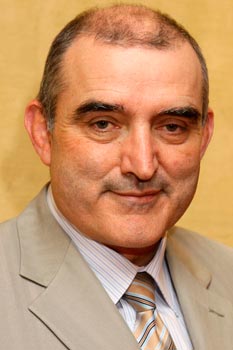Clarity needed on Government Programme for National Recovery
Having had regard to some of the commentary already in place and after some brief discussions with managers in the system I outline hereunder some preliminary observations and comments on the Government Programme for National Recovery.
General

There are concerns that the HSE is now in its seventh year of development and we have not yet bedded down and resolved satisfactorily the desired model for a fully integrated service. Proposals now contained in PNR, especially for acute hospitals, will further prolong this process.
Acute Services
Further clarity and greater definition is required regarding public acute hospitals moving into independent, not-for-profit trusts. With substantial ‘local governance’ input through management boards, caution needs to be exercised that this model should not be allowed to regress into the former health board mind-set where local politics fought for the preservation of all acute services on a local basis. The degree of ‘trust independence’ needs to be scoped out and the clear preference should be a national policy framework that recognises the supremacy of the National Clinical Programmes into any further configuration of acute hospitals and acute hospital trusts. Such trusts should not be allowed to develop and evolve at the expense of local service integration and a formal mechanism should be found through funding or incentivisation to protect local service integration.
The future of ISAs will need to be reviewed in this context and a rebalancing of community/acute strategies to ward against potential ‘strong’ acute trusts becoming dominant players in local health service delivery. The Programme is also relatively silent on the significant investment required in ICT in all service areas and is a pre-requisite platform for service integration in any model of care going forward.
The future of ISAs will need to be reviewed in this context and a rebalancing of community/acute strategies to ward against potential ‘strong’ acute trusts becoming dominant players in local health service delivery
Now that the PNR is in place it is essential that preparatory work commences at national level to address this change agenda for acute hospitals. Such work should address issues in policy formulation, governance, service delivery and management development to name but some. It is also very important that time-lines are agreed at national level and clearly communicated around this change agenda.
Primary Care
There is general welcome for the proposals relating to Primary Care and the negotiation of a new GP Contract is seen as the foundation stone for an accessible and equitable health system. There is no doubting the challenge of this task but its progression alongside the greater development and resourcing of PCTs (revenue and capital) is central to effective reform. There is a need for more clarity on overall governance arrangements and again, as with acute hospitals, care should be taken in formulating such arrangements to preserve balance between community/acute structures. A formal linkage for GPs into trust governance may be beneficial in this regard.
Integrated Care
Greater clarity and detail is required around the proposal for an Integrated Care Agency at national level, under the aegis of the Minister for Health. The ownership and delivery of integrated care should be local and its success (or otherwise) should be manifest through local structures with appropriate awards/sanctions formally in place through funding mechanisms. Putting in place a national agency to oversee integration is duplication and unnecessary and can be avoided by having clear local mechanisms, local ownership and leadership to drive this. The weakness however is in the setting up of independent acute trusts and the local protection of service integration must be formalised in whatever local structures eventuate.
RICHARD DOOLEY
President HMI

